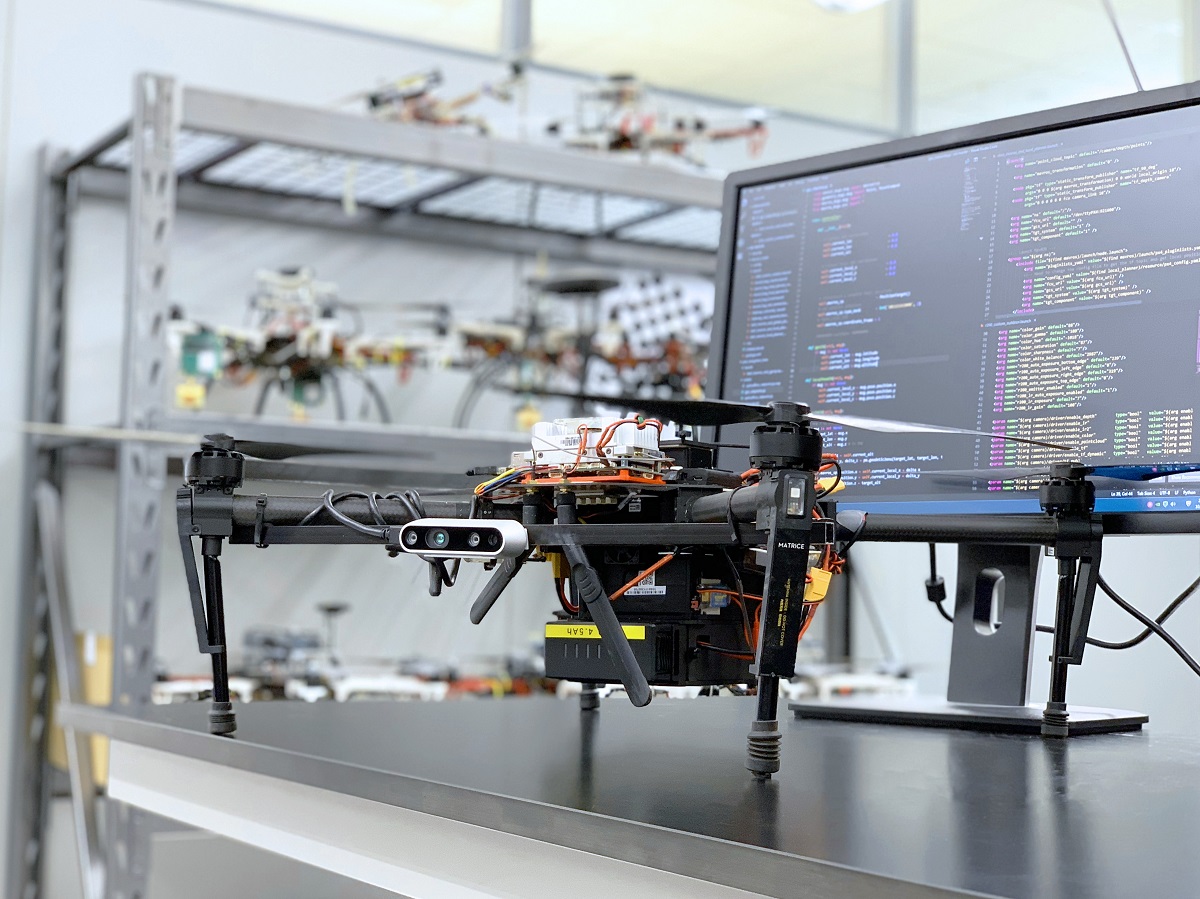KAUST robotics team wins honors at European Robotics League event
.jpg?sfvrsn=c792bbcc_1)
Researchers from the KAUST Robotics, Intelligent Systems, and Control lab (pictured here) recently won awards at the European Robotics League Emergency Robots Challenge in Sevilla, Spain. Image courtesy of Jeff Shamma.
By David Murphy, KAUST News
A team of researchers from the KAUST Robotics, Intelligent Systems, and Control (RISC) lab won both the "Best Air Team" special award and the European Global Navigation Satellite Systems Agency special prize during the recent European Robotics League (ERL) Emergency Robots Challenge in Sevilla, Spain. From February 18 to 23, the KAUST RISC team competed with several international university robotics teams from Croatia, France and Poland to complete a set of diverse aerial robotic challenges.
The ERL annually hosts various competitions throughout Europe that feature robots executing tasks in realistic environments. The ERL is composed of multiple "Local Tournaments" and a selection of "Major Tournaments," with teams taking part in at least two tournaments per year.
A 'tremendous effort'
During the Sevilla competition, the response capabilities of competing robots were measured in emergency situations through a set of challenges. The overarching goal of the ERL Sevilla event was to encourage advanced developments in the autonomous capabilities and seamless outdoor/indoor navigation for air and land robots.
The winning KAUST team was spearheaded by Kuat Telegenov, a research scientist from the RISC team who is supervised by Professor Jeff Shamma, director of the Center of Excellence for NEOM Research at KAUST.
.jpg?sfvrsn=318ac9b8_1/ShammaPRimages04-(1).jpg)
KAUST Professor Jeff Shamma acted in an advisory role to the team of researchers from his Robotics, Intelligent Systems, and Control lab who recently won awards at the European Robotics League Emergency Robots Challenge in Spain. File photo.
"The team deserved the awards for the tremendous effort and time that we put into the event. I was filled with a sense of pride and excitement when our team won two awards in the competition," Telegenov said.
Shamma, who acted in an advisory role to the team, said that he was "particularly proud of the independence and self-reliance" displayed by the RISC lab team during the ERL event in Sevilla.
The future of robotics research at KAUST
RISC lab team members are currently working on a variety of projects involving adaptive multi-agent and swarm robotics. They are also working on intelligent autonomous systems, including systems that either act alone or within a distributed decision architecture with other independent agents and human actors. The RISC team believes that addressing the challenge of deploying robots in unstructured and complex environments remains one of the principal future goals of global robotics research.

Team members from the University's Robotics, Intelligent Systems, and Control lab headed by KAUST Professor Jeff Shamma work on different projects involving adaptive multi-agent and swarm robotics and intelligent autonomous systems. Image courtesy of Jeff Shamma.
"The immediate conventional deployment of robots—especially in manufacturing—has robots operating in highly controlled and predictable environments," Telegenov noted. "However, settings such as disaster response or domestic assistance will have robots navigating, perceiving and manipulating an environment that is unknown and dynamic."
"Indeed, such environments would be the norm for marine, agricultural, construction and transportation applications," he continued. "Successful operations will require autonomy levels that allow a robot to perceive, adapt to and robustly interact with its surroundings. The research at KAUST addresses some aspects of these problems."
The research carried out by the RISC lab follows the broad themes of autonomous systems (the design of robotic systems with onboard intelligence to operate in complex environments with limited human supervision); distributed autonomy (self-organization and adaptation of multi-agent autonomous systems and swarms); and "humans & machines" (the study of dynamics and control for both human-machine systems and human-human social interactions).
"Some of the complementary future directions that address unstructured and complex environments that are particularly appealing for KAUST include grasping and manipulation; collaborative robotics; and synthesis, verification and validation methodologies," Shamma explained.
Related stories:
- Jeff Shamma elected IFAC fellow
- Robotics, Intelligent Systems, and Control Lab prepares robots to have swarm intelligence
- 'A mission for learning' at eighth Academic Convocation

